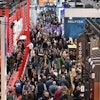Tariffs Hurt the Heartland, the national campaign comprised of over 150 of America’s largest trade organizations from across retail, tech, manufacturing and agriculture, has released the following statement after the Trump administration released a list of $300 billion in additional products they plan to place tariffs on.
“As the White House’s top economic advisor has acknowledged, tariffs are taxes paid by American businesses and consumers – not foreign governments. This latest escalation means the trade war will only get worse and hit home for every American. Forcing American consumers to pay more for clothes, shoes, toys, electronics and even food, while making it more difficult for exporters to compete, will do nothing to hold China accountable. Farmers, low-income consumers and small businesses will be disproportionately impacted at a time when every sale and every dollar counts.
“The trade war has gone on for far too long, and the costs have grown far too high. The patience of farmers, manufacturers, businesses and consumers is wearing thin. There is no excuse for patience from members of Congress either.
“As we’ve said all along, we support the administration’s goal of reaching an agreement with China that addresses unfair trading practices. Tariffs are the wrong way to do it, and the proof is growing every day. To put more pressure on China, we need to work with our trading partners across the globe who share our same concerns, deploy creative alternatives to tariffs and look to agreements that set higher standards for trade in Asia, like the Trans-Pacific Partnership.
“We encourage the administration to consider the impact to American families of allowing the trade war to escalate further. Tariffs are cumulative, which means that Americans will pay tariffs as high as 57% on clothing. We urge both countries to get the negotiations back on track. A prolonged trade war is in neither country’s best interest.”
Tariffs Hurt the Heartland commissioned a study which was prepared by Trade Partnership; it estimated that imposing tariffs of 25% on all remaining imports from China, combined with the impact of retaliation, would jeopardize more than 2 million American jobs, cost the average U.S. family of four nearly $2,300 each year and reduce the value of U.S. GDP by 1%.












![Hcm Ax Landcros Press Release[32] jpg](https://img.oemoffhighway.com/mindful/acbm/workspaces/default/uploads/2025/11/hcmaxlandcros-press-release32jpg.mAEgsolr89.jpg?ar=16%3A9&auto=format%2Ccompress&fit=crop&h=135&q=70&w=240)






